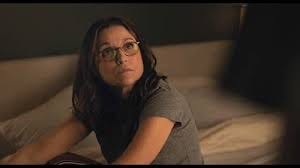Continuing to solidify his position as the alterna-Liam Neeson, Gerard Butler is once again appearing in a mid-tier action film in which he plays a gruff and oddly accented man’s-man who gets involved in the kind of explosive adventures that tend to be almost as forgettable as the titles they have been given. In this iteration, Kandahar, he plays Tom Harris, a CIA operative who, as the film opens, has successfully engineered the destruction of a secret Iranian nuclear facility and is about to head home—just in time for his young daughter’s grade school graduation, of course—when he agrees to squeeze in one last high-paying job to wreak similar havoc in Afghanistan. This job requires the use of a translator and so he is teamed up with Mohammad (Navid Negahban), an older man whip has just returned home after a long absence to look for a missing loved one. Unfortunately, Tom’s cover is blown and he and Mohammad are forced to race against time to a distant pickup point that is their only means of escape while being relentlessly chased by both Iranian and Afghan pursuers along the way.
For the most part, Kandahar is largely an eminently disposable B-movie junk, the kind of pseudo-complex action-drama of the sort that Ridley Scott could pull off in his sleep. That said, it is both more ambitious and slightly better than the typical low-grade junk that Butler has been doing over the last few years. The screenplay by Ric Roman Waugh (who also directed, his third such collaboration with Butler) and Mitchell LaFortune is slightly more nuanced and less xenophobic than one might expect and does take at least a few moments here and there to suggest that there are ideological differences between the various Middle Eastern powers depicted instead of lazily throwing them all together as a single Big Bad. For those not so interested in ideological concerns, there is also an impressively staged sequence involving a nighttime helicopter attack in the desert and Butler’s gruff, working-stiff persona feels a little less contrived than usual, especially in his scenes opposite Negahban.
On the other hand, outside of the aforementioned attack sequence, there is a distinct lack of tension to the proceedings for the most part that is exacerbated by the extended running time. Those hoping to see long sequences of Butler blowing the hell out of the various bad guys may be put off by the fact that his character spends more time evading pursuit that shooting things up. There are also more characters than the screenplay knows what to do with and the need to juggle between them winds up complicating what could have been a much leaner narrative with subplots that don’t really add up to much. In the end, Kandahar doesn’t quite work—certainly not enough to make it worth seeing—but as Butler projects go, it is more tolerable than the majority of them.
Becky (2020) was a gory low-budget action thriller about a 13-year-old girl wreaking bloody havoc on a group of neo-Nazis who invaded the vacation lake home where she was staying and murdered her father while searching for an all-important key. Essentially a slightly more brutal version of Home Alone, the film made the most of its two key assets—the spirited performance from newcomer Lulu Wilson in the title role and the against-type turn by Kevin James as the leader of the bad guys—and proved to be one of the first theatrical successes of the pandemic era when it turned up at drive-ins that were in need of new product that the majors were not supplying at the time. Now, with the pandemic mostly over, Becky is back for more in The Wrath of Becky, a sequel in which our heroine once again crosses paths with a group of bad guys and reduces them to little more than body parts over the course of 90 minutes.
Picking up three years after the first film, the now 16-year-old Becky (Wilson) and her beloved dog, Diego, are living with kindly older woman Elana (Denise Burse) while trying to stay as far off the grid as possible. Working as a waitress in a diner, where she struggles to keep her violent tendencies at bay, she is one day pushed over the edge by the arrival of three members of a neo-fascist movement dubbed The Noblemen (played by Michael Sirow, Aaron Dalla Villa and Matt Angel, the latter also serving as the film’s writer-director) who have arrived to protest at a speech from a U.S. Senator the next day, “accidentally” dumping coffee in the laps of one of them. In retaliation, the three follow her home and wreak violent havoc before disappearing with Diego. When Becky comes too, she manages to track them down to a remote farm belonging to Nobleman ringleader Darryl (Sean William Scott) and when she discovers that the guys are planning to do a lot more than just protest, let us just say that John Wick himself would bow to Becky in her determination to rescue her dog and punish those unwise enough to have taken him in the first place.
Perhaps recognizing the potential ludicrousness of one teen girl running into and dispatching two groups of fascist fools in increasingly gruesome ways, The Wrath of Becky takes a more overtly comedic approach to the material, especially in regards to the over-the-top ways in which Becky dispatches her tormentors, both in her vivid imagination and in reality. This was probably the right decision in theory, I suppose, but it just doesn’t quite click here. Although there are some darkly amusing moments here and there, the film takes on a more overtly campy tone as things progress and the body count rises. The film also makes the mistake of spending a little too much time with the tormented and their various discussions and squabbles, which do little other than take away from the one character of interest while boosting the extremely slight story into feature-length territory including an ending sequence designed primarily to set up future installments. As was the case with the original, the best thing about The Wrath of Becky is Wilson, who is funny, fearsome and charismatic as all get out throughout. Watching her transform her opponents into clumsily rendered CGI-goo still has an undeniable cheeseball appeal and makes you wish that both she and her character had been given a stronger framework in which to show their stuff. If the hinted-at continuation does come along, here is hoping that Becky and Wilson get a narrative as thrilling, exciting and distinctive as they clearly are.
Over the course of such previous films as Walking and Talking, Please Give and Enough Said, filmmaker Nicole Holofcener has quietly becoming one of the most consistently impressive and amusing comedic filmmakers working in America today and with her latest work, You Hurt My Feelings, she has created her funniest and most incisive work to date. Julia Louis-Dreyfus, who co-starred in Enough Said, plays Beth, a writing teacher who had exceedingly moderate success with her first book, a memoir focused on the verbal abuse she suffered at the hands of her father, and who has just completed work on her first novel, only to be rocked by the news that her publisher isn’t too keen on it. Her therapist husband, Don (Tobias Menzies), is incredibly supportive and encourages her to send the book elsewhere but one day, she and her sister, Sarah (Michaela Watkins) overhear him confessing to brother-in-law Mark (Arian Moayed) that he actually doesn’t think the book is very good either, sending Beth into a passive-aggressive spiral of angst that eventually explodes at a birthday dinner for Mark and leaves her wondering whether to give up writing altogether. Meanwhile, the others in her immediate circle are also suffering doubts about their particular career paths—Don begins to question whether he is actually helping any of his patients, interior decorator Sarah wonders if there is more to life than finding expressive light fixtures for yuppie types and actor Mark finds himself questioning his calling after being fired from a play. Even Beth and Don’s son, Eliot (Owen Teague), is at odds with himself—he is upset that his mother seems embarrassed that he works at a pot dispensary and finds himself chafing under the wild expectations for the play that he has been working on.
Unlike a lot of comedies (hell, unlike most movie period) these days, You Hurt Me Feelings is actually about something—a lot of things, in fact. Over the course of a mere 93 minutes, Holofcener tackles such issues as our constant need for validation (even when we claim otherwise) and our tendency to try to find it through our jobs, the importance of trust in relationships, both personal and professional, and the tendency of parents to replicate the problems they had with their own parents with their kids, no matter how hard they try to do otherwise and handles them with intelligence and understanding. That would be more than enough but Holofcener also brings a lot of genuine wit to the material as well and the result is one of the funniest and most delightfully cringeworthy comedies to come along since Albert Brooks stopped making movies. There are any number of truly inspired moments to be had here—Don’s sessions with an increasingly confrontational couple (David Cross and Amber Tamblyn) who are beginning to suspect that he may just be a bad therapist, Beth meeting with her class to discover their writing projects and discovering that none of them knew that she even wrote a book in the first place, Beth trying in unobtrusively place that book in a more prominent place in a bookstore, Beth’s meetings with her own mother (Jeannie Berlin) and the centerpiece birthday dinner where the truth finally comes out—and there is hardly a scene in the film that doesn’t contain at least one big laugh. The performances are strong across the board but it is Louis-Dreyfus who really knocks it out of the park with what may well be the single best and most nuanced work in a career filled with great performances—she deftly skewers Beth and her considerable array of foibles throughout but also takes the time to make her into a real and recognizable person instead of just a satirical target. Based on their work together so far, she and Holofcener appear to be one of those actor-filmmaker collaborations that only come along once in a great while—two great talents who help to push each other to greater heights—and while it is hard to imagine how they could possibly manage to top their work here, I cannot wait to see what they come up with in the future. Until then, do not miss You Hurt My Feelings, a film that I am reasonably certain will go down as one of the very best of 2023.






